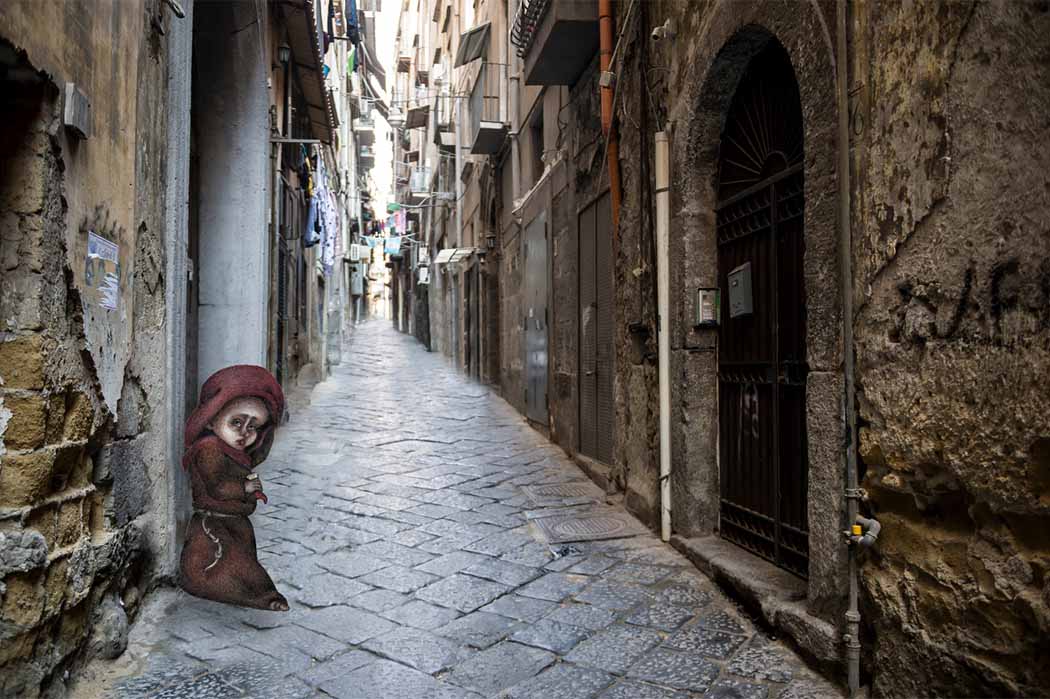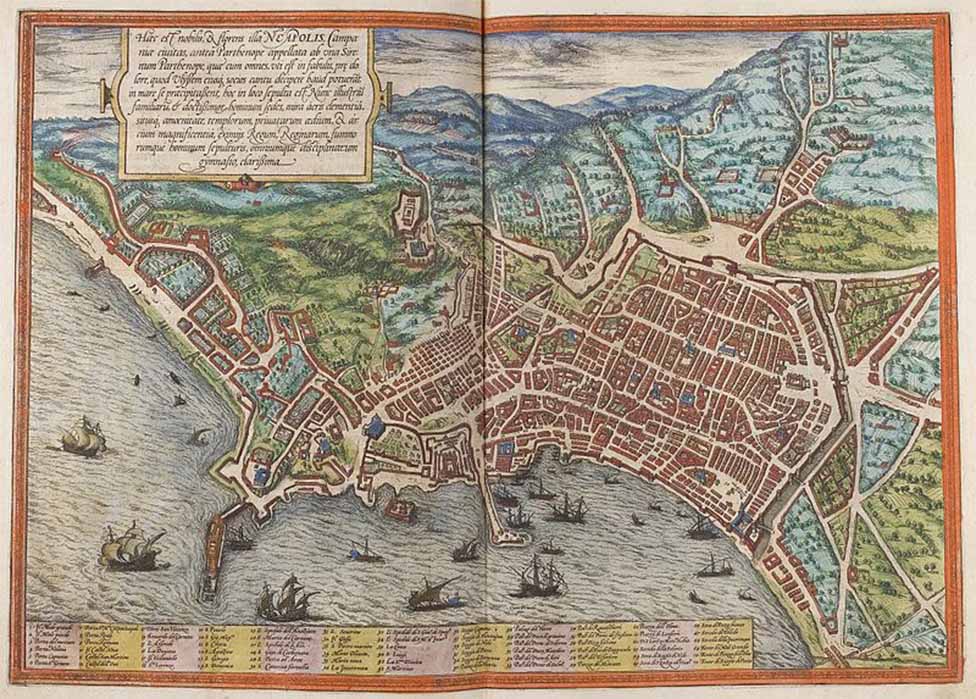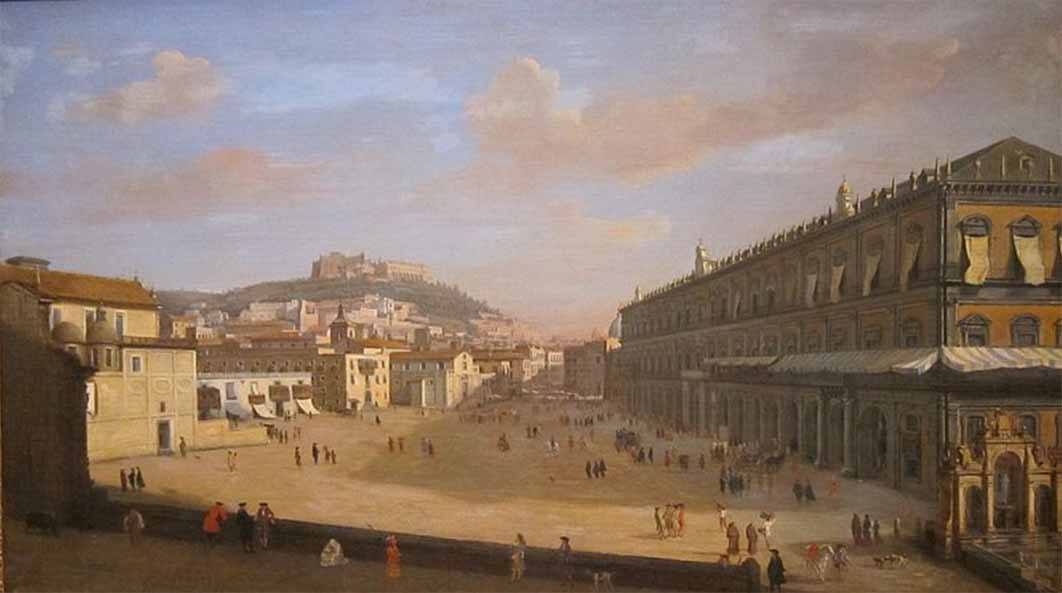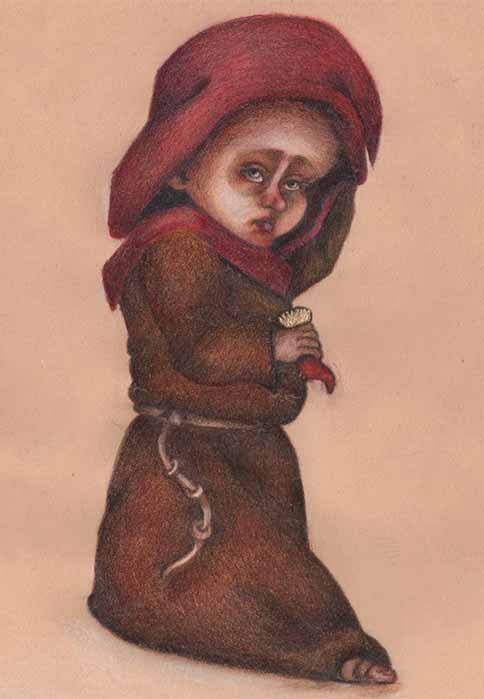
Mischievous Munaciello, A Folletto Character Of Neapolitan Folklore
Every country in the world has its own rich folklore, every city and village has its own legends about fantastic creatures and supernatural beings told by grandparents to parents to children, enriched with ever new twists, embroidering a tapestry of tales that fascinate and preoccupy the minds and hearts of enchanted listeners. These entities exist in that middle world where space and time cannot be measured according to human conventions, in a limbo kept alive by the continuity of the particular narrative. The fables told about these imaginary characters from another world are intertwined with history and they blend into the daily lives of ordinary people.

Map of Naples by Georg Braun; Frans Hogenberg (1572) Universitätsbibliothek Heidelberg (Public Domain)
Strengthened over time with ancient superstitions, ancestral fears and desires are converged onto these characters. These entities are as numerous as they are mysterious, at times hostile and fearful, at other times good-natured and lovable and they are often infused with contradictory characteristics that emphasize their ineffable nature. They mostly prefer the company of those who believe that it is possible to communicate with the afterlife, those who are not satisfied with rational explanations of events that appear to have no natural causes, those who have maintained a strong bond with their family roots, and, last but not least, who have been able to keep alive the ability to be amazed, to see the extraordinary even in the ordinary. These beings, suspended between worlds, can make themselves visible and perceptible in unexpected ways, or act as actors following a defined script; they can appear at night or during the day, hide in the woods, haunt inhabited homes and ancient ruins of religious buildings.

View of the Royal Palace at Naples by Gaspar van Wittel (1706) Cincinnati Art Museum (Public Domain)
Italy also has its legends, fables and folklore about these beings with supernatural characteristics, some are called folletti - folletto is a diminutive or nickname for folle, from the Latin follis, which means ball and other things inflated with air, light and unstable. The inhabitants of the city of Naples, in the Campania region, in the south of the peninsula, are particularly harassed by a folletto called Munaciello.

Munaciello according to popular imagery ( Lady of a times /CC BY-SA 4.0)
Mischievous Munaciello
Usually spiteful, Munaciello can change his moods from benign to malignant depending on the behavior or financial status of the people who encounter him. His name in Neapolitan dialect means ‘little monk’ and he is usually depicted wearing a robe and silver buckles on his shoes. However, Munaciello’s appearance can vary: for example, he can be represented as a deformed child, but also elderly with a wig, young and elegant, dressed in a Franciscan habit, with a sad look, or laughing, and often with a mischievous smile. Neapolitans have a saying: “O Munaciello, a chi arricchisce e a chi appezzentisce” which summarizes what one can expect from him: “Munaciello can either enrich a person or reduce a person to become a beggar” (appezzentire means: to make a beggar).




